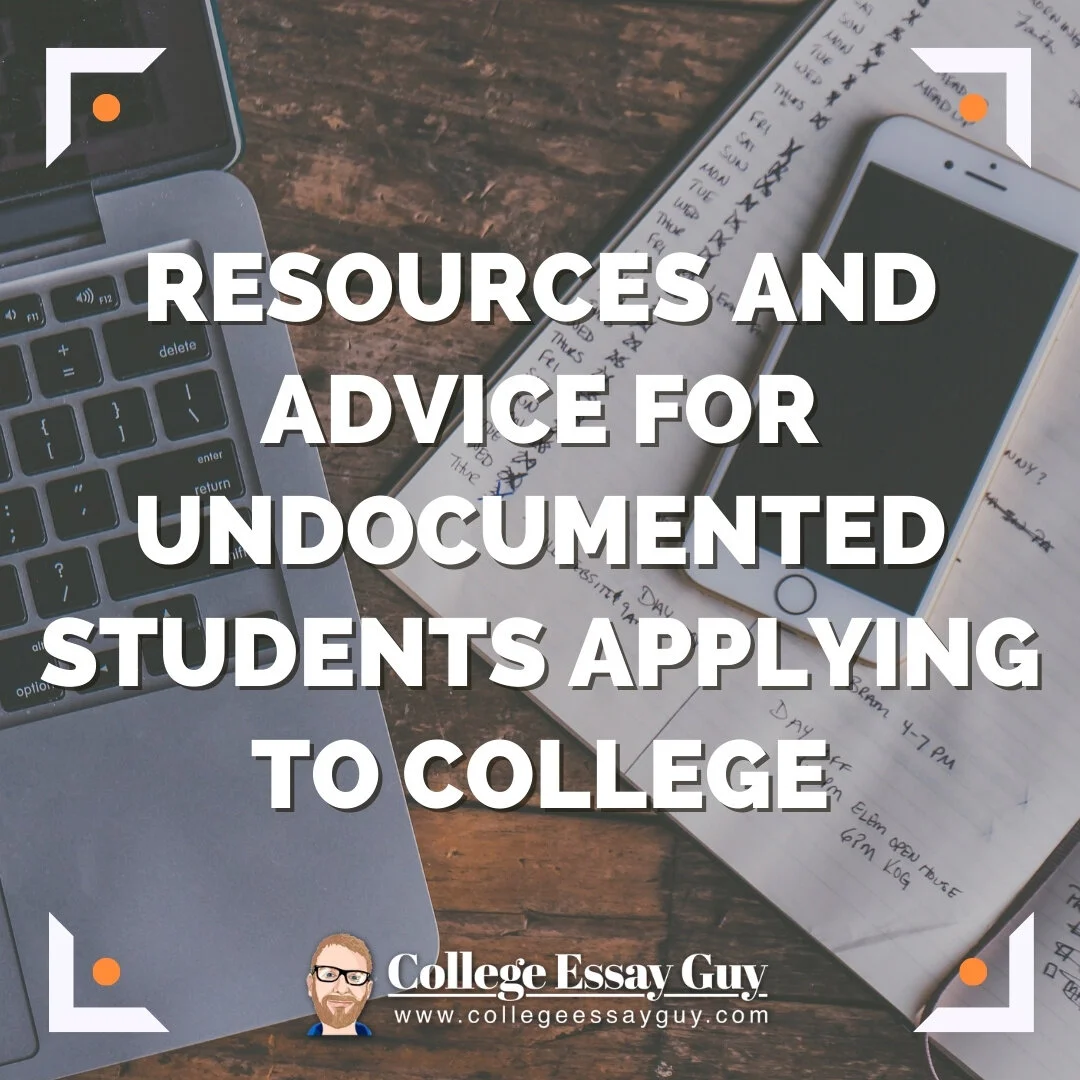Thanks to Dr. Aliza Gilbert for writing this post.
In this post we cover:
What does it mean to be undocumented?
Tips for College-Bound Undocumented Students
What does it mean to be undocumented?
The National Immigration Law Center defines an “undocumented” person as a foreign national who: entered the United States without inspection or with fraudulent documents; or entered legally as a nonimmigrant but remained in the United States without authorization, thereby violating the terms of their status.
In other words, you are undocumented if you live in the United Students but are not a citizen or legal permanent resident, or your visa is expired. Federal law does not explicitly prohibit an undocumented person from attending college, but undocumented students, including those with DACA, are ineligible to receive federal aid. In most states, undocumented students are ineligible to receive state aid and often must pay out-of-state tuition costs at public universities. Some states also prohibit or restrict undocumented students’ access to public universities.
Tips for College-Bound Undocumented Students
Identify a trusted ally, teacher, advisor, or mentor at your school who can help you navigate the admission and financial aid process. (If you don’t know of someone locally, you can find one at www.collegeessayguy.com/matchlighters)
Find out if you are in a state that offers in-state tuition and/or state aid to qualified undocumented students.
Develop a broad list of colleges and consider schools for which your profile is at the top of their applicant pool. This will increase your chances of significant merit awards.
Directly ask each college on your list if they give undocumented students institutional scholarships and grant aid. If they do, it’s important to get on the admission counselor’s radar. This person can tell you the financial forms required in lieu of the FAFSA to be eligible for institutional grants and scholarships.
Identify an admission counselor or staff member at each of your prospective colleges who has the following: experience with undocumented students; a solid working knowledge of the challenges and situations you might face; and the willingness and capability to support you through your education at their school.
Remember, you do not have to share your status if you don’t want to! But if you do, decide how to reveal your status in the essays.
Explore all scholarship sites and online resources to see which are open to non-U.S. residents. Leave no stone unturned! Some sites we recommend: Dreamers Roadmap, My Undocumented Life, Immigrants Rising, Illinois Association for College Admission Counseling, MALDEF (some of these scholarships require citizenship but many do not), The Dream.US, and Golden Door Scholars. Many of these organizations also have a Facebook page where they post additional scholarships. Also, download the DACA Scholars App on your phone. Finally, remember to think locally and explore community-based scholarships.
If you’re exploring colleges out of state, consider how air travel restrictions might impact your ability to travel home.
Think about college as a four-year investment. You might qualify for more scholarships as a first-year student than as a transfer student. Starting at a community college, while cheaper initially, might be more expensive in the long run.
Veteran counselor Dr. Aliza Gilbert, Ph.D. is regarded by many as a leading advocate for undocumented youth. Her doctoral research actually examines how schools support or fail to support undocumented students. I recommend listening to our podcast interview. We cover a range of topics including how teachers, mentors, and counselors can advocate for undocumented youth and whether or not students reveal their undocumented status in their personal statement.








